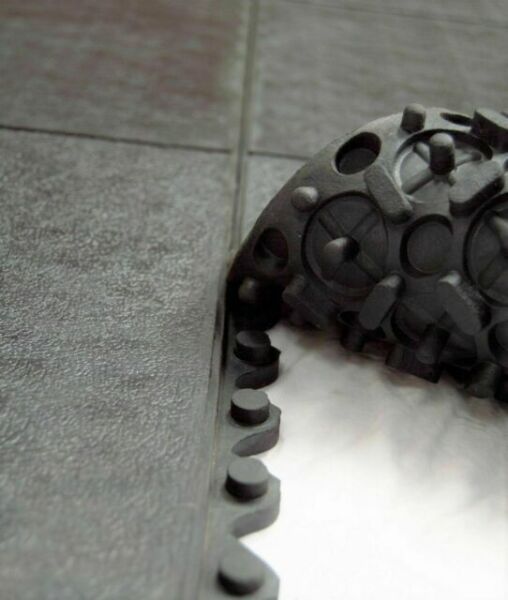Puggers
Established Member
Hi,
Having recently relocated, we've bought a house with an 3m x 6m garden studio which after some finessing will become my workshop, this being an upgrade from the garage at our last house. It's log cabin style with plaster-boarded internal walls over insulation, with the ceiling to match.
The floor is also wooden and covered by a pretty basic thin carpet over underlay and before I finish the fitting-out, I need to make a decision on the floor covering which is where your experiences would help.
My initial thoughts were to use a flat rubber matting which will be durable and enable me to run any tools or cabinets on castors over it pretty easily. In addition, this would hopefully afford me some fatigue mitigation which is important as I have long-term issues with my lower back and calve muscles. I've all but decided against the interlocking gym mat style as whilst they may have the comfort factor at around 12mm thick, I can't envisage them lasting that long with any items moving across them on wheels and their "bouncebackability" maybe limited.
That's taken me down a route of looking at stable mats which come in sheets and can be purchased at 10mm thickness upwards - they're not cheap but they're clearly durable and have a smooth finish. I've also been shown some samples of a contractor level vinyl flooring (used in shop fitting) which is 7mm thick but I'm questioning whether the clear durability far outbalances the additional need for comfort when standing on it for a long while.
Of course, I could simply replace the carpet in the communal areas with something like contractor Berber type tiles (which will be a right pain to get the dust and shavings off) and then use a matting such as the ones in gyms against the benches but I don't want to create a trip hazard where the two meet, albeit, I could raise the floor where the 5mm carpeting lies to match the 12mm mats, but that seems like a lot of effort if there are more sustainable options out there.
This isn't a money's no object exercise but equally I want to try and do it once and do it right.
Any opinions on alternative solutions through personal experience would be welcomed. Thanks in advance.
Having recently relocated, we've bought a house with an 3m x 6m garden studio which after some finessing will become my workshop, this being an upgrade from the garage at our last house. It's log cabin style with plaster-boarded internal walls over insulation, with the ceiling to match.
The floor is also wooden and covered by a pretty basic thin carpet over underlay and before I finish the fitting-out, I need to make a decision on the floor covering which is where your experiences would help.
My initial thoughts were to use a flat rubber matting which will be durable and enable me to run any tools or cabinets on castors over it pretty easily. In addition, this would hopefully afford me some fatigue mitigation which is important as I have long-term issues with my lower back and calve muscles. I've all but decided against the interlocking gym mat style as whilst they may have the comfort factor at around 12mm thick, I can't envisage them lasting that long with any items moving across them on wheels and their "bouncebackability" maybe limited.
That's taken me down a route of looking at stable mats which come in sheets and can be purchased at 10mm thickness upwards - they're not cheap but they're clearly durable and have a smooth finish. I've also been shown some samples of a contractor level vinyl flooring (used in shop fitting) which is 7mm thick but I'm questioning whether the clear durability far outbalances the additional need for comfort when standing on it for a long while.
Of course, I could simply replace the carpet in the communal areas with something like contractor Berber type tiles (which will be a right pain to get the dust and shavings off) and then use a matting such as the ones in gyms against the benches but I don't want to create a trip hazard where the two meet, albeit, I could raise the floor where the 5mm carpeting lies to match the 12mm mats, but that seems like a lot of effort if there are more sustainable options out there.
This isn't a money's no object exercise but equally I want to try and do it once and do it right.
Any opinions on alternative solutions through personal experience would be welcomed. Thanks in advance.



































